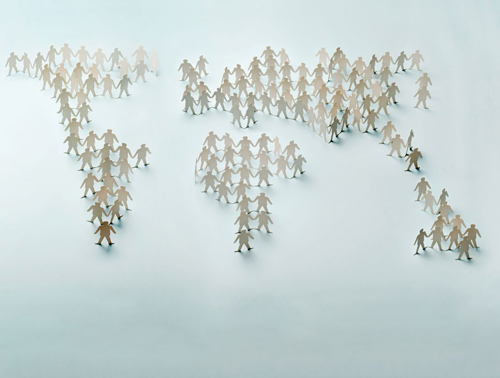The power of togetherness
Achim Steiner, administrator, United Nations Development Programme, shares with John Kirton what can be achieved when the world comes together to overcome individual issues as part of the wider global development landscape
How could the G7 leaders at their Biarritz Summit best follow up the work done by the G20 leaders at Osaka?
As host of the Biarritz Summit, French president Emmanuel Macron has sent some ambitious signals. The G7 remains a small group of members with a disproportionate influence, role and responsibility in terms of political and economic stability in the world. I hope we will see in Biarritz a reduction in the dissonance among the G7 members in addressing climate change. We may not have complete unity, but a strong signal on progress will be critical. Inequality and economic disparities are also issues challenging G7 members in their own domestic political arenas and also in terms of the critical global role they play. And global security takes on a particularly important role when the G7 is in Europe, given the insecurity in key parts of world where Europe has been linked, whether through migration and displacement, or whether through the rise of violent extremism. Just in the Sahel region alone, can the G7 advance the capacity to engage effectively in the long term and invest in the more structural transformation that those countries are looking for? That’s why Africa is very much on the agenda of the G7 summit.
How do the Sustainable Development Goals help advance the Biarritz Summit’s central goal of strengthening equality for all?
You can always turn the SDGs on their head, so to speak, and view them as a risk map. The world concluded in 2015 that if we do not act more intelligently, more collectively and in a more transformative way, we risk facing even greater problems or crises. For the G7, the SDGs also map the major risk areas that, left unaddressed, will exacerbate inequality and domestic political tensions. They also pinpoint a growing number of territories that could become unstable. Just look at Afghanistan, Somalia, the Sahel – and in Mali, even with a significant international peacekeeping mission, it is a struggle to help the country stabilise again. This is where the G7’s collective capacity to act is fundamental. No individual country can bring either the resources or the political leverage that is needed.
Iraq has taught us much. As the coalition forces and the Iraqi army took over the cities, the ability to implement rapid stabilisation programmes – in which the UNDP was such a central player with the Iraqi government – was only possible because the international community came together. It made $1 billion available to allow us to bring four and a half million out of six million displaced people back to their homes and begin reconstruction and rebuilding. These success stories recognise that if you cannot answer the development perspective of people in a crisis or a conflict, you are unlikely to be able to stop the recruitment and financing of violent extremism and radicalisation.
Can we expect the United Nations to review the progress of the SDGs to shape the path to 2030?
Yes – the heads of state and government come together every four years to take stock of SDG progress, and that’s happening at the United Nations in New York this September with the SDG Summit. This will occur alongside the Climate Action Summit convened by the UN secretary-general as well as summits on financing for development, universal health coverage and small island developing states. This September is an alignment of major meetings happening around the high-level segment of the UN General Assembly that is likely to attract a record number of world leaders.
The leaders will look at how their countries and the world are doing as a whole. This is an opportunity for us to review progress and success stories and learn from them. It also allows leaders to speak about how they have taken up the SDGs. Indeed, leaders from countries that have not yet come very far can look over the fence at their neighbours and see what is working and why it makes sense. Moreover, the community of nations can assess whether we are likely to achieve the SDGs by 2030 and what we need to do differently or more deliberately in order to maintain the growing momentum towards implementation.
These summits can take the form of a political declaration, voluntary commitments and a reaffirmation of the 2030 Agenda for Sustainable Development. Above all, we would like to ensure that the world understands how unique, singular and powerful the 2030 Agenda is at unifying essentially every country. Its universality and integrated approach have proved to be very resilient. We want to encourage actors outside of government to believe in how relevant and useful this agenda is for them to engage with a wide range of actors including the private sector, the financial sector and civil society. It is very clear that we cannot meet the challenges of the 21st century by simply picking out individual issues. We can own them, we can feel passionate about them, we can become activists for them. However, our likelihood of success is in part premised by not isolating individual issues from either their national development landscape or the global development reality.
When people talk with each other, they are less likely to be in conflict or end up in conflict with each other. The UN is about getting the world to talk, and the events taking place this September are an amazing illustration of the power of this idea.












